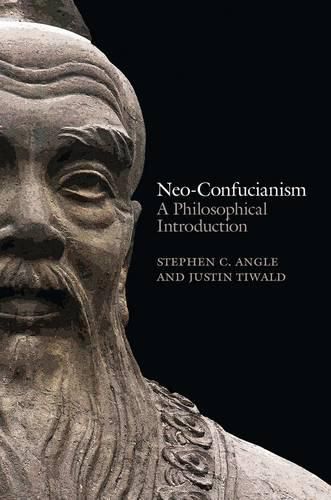Readings Newsletter
Become a Readings Member to make your shopping experience even easier.
Sign in or sign up for free!
You’re not far away from qualifying for FREE standard shipping within Australia
You’ve qualified for FREE standard shipping within Australia
The cart is loading…






Neo-Confucianism is a philosophically sophisticated tradition weaving classical Confucianism together with themes from Buddhism and Daoism. It began in China around the eleventh century CE, played a leading role in East Asian cultures over the last millennium, and has had a profound influence on modern Chinese society.
Based on the latest scholarship but presented in accessible language, Neo-Confucianism: A Philosophical Introduction is organized around themes that are central in Neo-Confucian philosophy, including the structure of the cosmos, human nature, ways of knowing, personal cultivation, and approaches to governance. The authors thus accomplish two things at once: they present the Neo-Confucians in their own, distinctive terms; and they enable contemporary readers to grasp what is at stake in the great Neo-Confucian debates.
This novel structure gives both students and scholars in philosophy, religion, history, and cultural studies a new window into one of the world’s most important philosophical traditions.
$9.00 standard shipping within Australia
FREE standard shipping within Australia for orders over $100.00
Express & International shipping calculated at checkout
Neo-Confucianism is a philosophically sophisticated tradition weaving classical Confucianism together with themes from Buddhism and Daoism. It began in China around the eleventh century CE, played a leading role in East Asian cultures over the last millennium, and has had a profound influence on modern Chinese society.
Based on the latest scholarship but presented in accessible language, Neo-Confucianism: A Philosophical Introduction is organized around themes that are central in Neo-Confucian philosophy, including the structure of the cosmos, human nature, ways of knowing, personal cultivation, and approaches to governance. The authors thus accomplish two things at once: they present the Neo-Confucians in their own, distinctive terms; and they enable contemporary readers to grasp what is at stake in the great Neo-Confucian debates.
This novel structure gives both students and scholars in philosophy, religion, history, and cultural studies a new window into one of the world’s most important philosophical traditions.